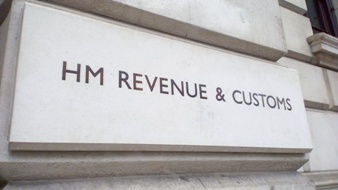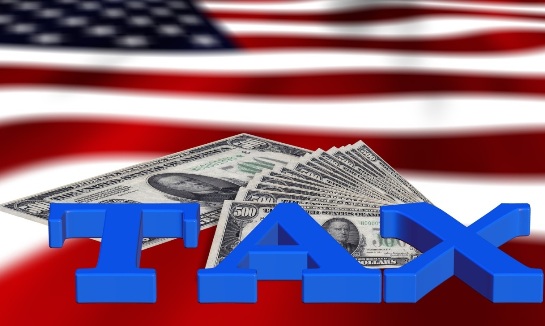Hong Kong Challenges Cayman, BVI as Favoured Fund Domicile

April, 2021
Author: Dominik Stuiber
Hong Kong’s status as an international asset and wealth management centre and offers for investment funds has become more comprehensive with recent enhancements of the Open-ended Fund Company (OFC) and the Limited Partnership Fund (LPF) challenging preferred offshore fund jurisdictions like the Cayman Islands. The government further plans to submit a legislative proposal in the second quarter of this year to allow foreign investment funds to re-domicile to Hong Kong for registration as OFCs or LPFs.
The OFC and LPF regime suits various types of investment funds and an amendment bill to provide tax concessions for carried interest issued by private equity funds operating in Hong Kong was introduced to apply starting from 2020-21.
Another key focus of the Hong Kong government is to enhance the city’s attractiveness as a hub for family offices (read more here)
Our guide to Hong Kong’s LPF regime is available for download on our website or from our article here: https://zetland.biz/blogs/?title=&id=33
| Key benefits at a glance |
| Facilitate international fund distribution – corporate structure familiar to overseas investors |
| Tax incentives – OFCs benefit from Hong Kong profits tax exemptions |
| Cost-savings over offshore structure – no duplication of service providers or fees |
| Fast set-up – “one-stop” application to the SFC |
| Cater for public and private funds – including listed and unlisted funds, hedge funds and private equity funds |
| Easy management – no annual returns nor mandatory annual general meetings |
| Administrative convenience for private OFCs – flexibility in setting subscription and redemption terms and conditions – no annual fees – approval only needed for changes to name, appointment of key operator, sub-fund creation, and termination |
In 2018 the OFC was introduced under the Securities and Futures Ordinance to provide a corporate fund structure for investment funds domiciled in Hong Kong. An OFC may be constituted as a single fund or an umbrella fund. Hong Kong based managers often preferred an offshore company, domiciled for example in the Cayman Islands. This was partly due to the reason that offshore funds enjoyed preferential tax treatment in Hong Kong. Until the recent enhancements to Hong Kong’s funds tax exemption regime.
The Unified Funds Tax Exemption
The Unified Funds Tax Exemption seeks to exempt funds, including OFCs and LPFs, from Hong Kong profits tax provided that prescribed conditions are satisfied. The new Unified Funds Tax Exemption provides an exemption from profits tax for profits derived from certain transactions to funds. Hong Kong OFCs may be exempt from Hong Kong profits tax in circumstances where traditional Cayman SPC structures may not be.
Application to Non-OFC Funds
For funds which are not OFCs, the Unified Funds Tax Exemption exempts from profits tax profits earned from transactions in securities, including shares and debentures of private companies, futures contracts, exchange traded commodities, OTC derivative contracts, foreign exchange contracts and other asset classes specified in Schedule 16C of the Inland Revenue Ordinance (IRO) as well as transactions that are incidental to such qualifying transactions (capped at a maximum of 5%). Incidental transactions may include the custody of securities, and the receipt of interest or dividends on securities acquired through the qualifying transactions.
Application to OFC Funds
For OFCs, the Unified Funds Tax Exemption exempts from profits tax profits earned from transactions in all asset classes without distinction whether these are transactions in securities or incidental transactions.
Requirements and Conditions
The Unified Funds Tax Exemption requires that transactions must be carried out or be arranged in Hong Kong by a SFC licensed corporation or authorised financial institution. OFCs will normally carry out or arrange transactions through an asset manager which holds a SFC Type 9 license for asset management.
However, if transactions are not carried out by a specified person, the fund may nevertheless qualify for relief under the Unified Funds Tax Exemption if it is a qualified investment fund. Although there is no requirement for LPFs to appoint an investment manager which is SFC licensed, the LPF regime appears to assume that the general partner or the investment manager will be a licensed entity and thus qualify the LPF for exemption under the Unified Funds Tax Exemption.
Restrictions on Investments in Private Companies
If a fund or a special purpose entity owned by a fund invests in shares, stocks, debentures, loan stocks, funds, bonds or notes issued by a private company, additional conditions must be satisfied for the Unified Funds Tax Exemption to apply.
- an immovable property test (less than 10%); and
- one of the following:
- holding period test (disposal of assets not less than 2 years after they are acquired),
- b. control test (no control over the private company which issued the securities; or
- short-term asset test (the private company holds short-term assets the aggregate value of which does not exceed 50% of the value of the private company’s assets).
These additional conditions are anti-avoidance provisions for tax evasion through the use of funds.
Carried Interest
The government published the Inland Revenue (Amendment) (Tax Concessions for Carried Interest) Bill 2021 in the Gazette end of January 2021. It aims to amend the Inland Revenue Ordinance to provide tax concessions for carried interest distributed by eligible private equity funds operating in Hong Kong.
"In recent years, PE funds have become a key impetus to the growth of asset and wealth management business. PE funds play a pivotal role in channelling capital, talents and expertise into corporations, in particular start-ups in the innovation and technology sector. The proposed tax concessions for carried interest shall attract more PE funds to operate and be managed in Hong Kong, boost more investment management and related activities which will create business opportunities in related professional services and bring economic benefits to Hong Kong," a spokesman for the Financial Services and the Treasury Bureau said.
The amendment bill proposes that eligible carried interest would be charged at a NIL rate for profits tax and 100% of eligible carried interest would be excluded from employment income for the calculation of salaries tax. Thus, exempting carried interest income linked to the performance of an investment for both funds and managers.
The concessionary tax treatment will apply to eligible carried interest received by or accrued to qualifying carried interest recipients on or after 1 April 2020.
For more information about setting up a fund, OFC or LPF, please do not hesitate to contact us.

















